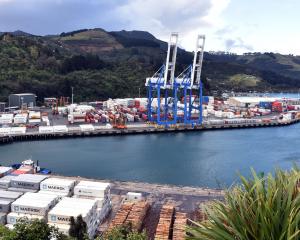But there still appears to be a desire for the merger to proceed, with both Port Otago chairman John Gilks and Lyttelton Port Company deputy chairman Bill Luff both expressing a desire to resume talks in the future.
"We believe there is great value in it and we do not want to say it is off the table unconditionally," Mr Luff said in an interview.
Mr Gilks was equally committed to completing the deal.
"In due course, we may have an opportunity to reassess and see if the merits identified in the current round of negotiations remain applicable, and I hope they do."
Mr Luff said Lyttelton Port Company's priority was to get a safe working environment, then to assess damage and start repairs.
He did not know the cost of the repairs, which were covered by insurance, or the time needed to undertake them.
"It is in months, if not years, in terms of the lead time we are looking at," he said.
Mr Gilks said while he sympathised, the decision came just weeks before conclusion of an agreed commercial structure which was to go to boards for consideration by December.
He thought the deal could still have been concluded, but the fact it would not be was an indication damage to the port was greater than originally thought.
"From a straight commercial point of view, both parties some time ago committed to achieving a final outcome - yes or no - by December."
Ratification of the deal would have meant both companies would be joint owners of a new merged entity, with Port Otago to invest between $40 million and $60 million in cash to compensate for the lower value of assets it was contributing.
"It was truly 50:50," Mr Gilks said.
Shipping and logistics were changing, he said. There could be an even stronger case to merge in the future, as both companies were small and vulnerable to decisions made by shipping lines.
A merger would diversify the businesses in which Otago was predominantly an export-oriented port, with 70% of its container traffic handled by one shipping line, and Lyttelton import orientated.
Mr Gilks said a merger would also mean greater surety of dividends to Port Otago's shareholder, the Otago Regional Council, which have been worth about $70 million in the last 10 years.
Repairs at Lyttelton were likely to result in upgraded and more modern infrastructure, but it was unclear at this stage what this meant to Port Otago or future merger talks, Mr Gilks said.
In the next few weeks, Port Otago management would be focused on reviewing company plans, given the merger was off the immediate agenda.
Port Otago would continue to seek resource consent to widen the port channel and would retain its 15% shareholding in Lyttelton Port Company, as it was a good investment.





